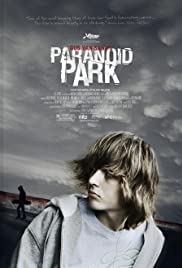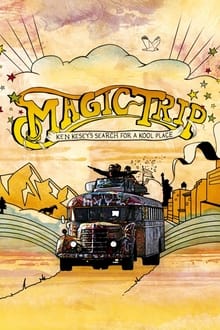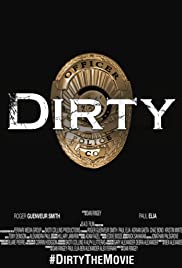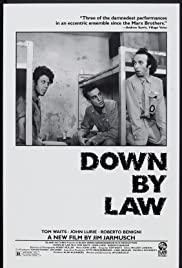
A brutally honest documentary film by disabled filmmaker Richard Butchins exposing the abuse, intimidation and aggression faced by disabled people in Britain in everyday life. Featuring survivors sharing their experiences.
You May Also Like

The teenager and skateboarder Alex is interviewed by Detective Richard Lu that is investigating the death of a security guard in the rail yards severed by a train who was apparently hit by a skate board. While dealing with the separation process of his parents and the sexual heat of his virgin girlfriend Jennifer, Alex writes his last experiences in Paranoid Park with his new acquaintances and how the guard was killed, trying to relieve his feeling of guilty from his conscience.

A man invites a young couple to vacation on a remote island to help reignite their faltering relationship. He initially seems to be a good host but the couple starts to suspect that his true intentions are much more sinister.

Director Martin Scorsese speaks candidly and passionately about one of his formative filmmaking influences: the late Elia Kazan. Utilizing precisely chosen clips from Kazan’s signature films including “On the Waterfront,” “A Streetcar Named Desire,” “Gentleman’s Agreement,” “Baby Doll,” “A Tree Grows in Brooklyn,” “A Face in the Crowd,” “America, America,” and “The Last Tycoon,” and interview footage of the director himself, co-directors Scorsese and Kent Jones recount the director’s tumultuous journey from the Group Theatre to the Hollywood A-list to the thicket of the blacklist. But most of all, they make a powerful case for Kazan as a profoundly personal artist working in a famously impersonal industry.

A police brigade working in the dangerous northern neighborhoods of Marseille, where the level of crime is higher than anywhere else in France.

A freewheeling portrait of Ken Kesey and the Merry Prankster’s fabled road trip across America in the legendary Magic Bus. In 1964, Ken Kesey, the famed author of “One Flew Over the Cuckoo’s Nest,” set off on a legendary, LSD-fuelled cross-country road trip to the New York World’s Fair. He was joined by “The Merry Band of Pranksters,” a renegade group of counterculture truth-seekers, including Neal Cassady, the American icon immortalized in Kerouac’s “On the Road,” and the driver and painter of the psychedelic Magic Bus.

Two dirty cops find themselves relieved of over two million dollars in stolen drugs and money, forcing them into a bizarre and mysterious investigation to recover it.

Auschwitz-Birkenau was designed to kill. Four gas chambers murdered thousands at a time, belching out smoke and human ashes. Starvation, thirst, disease, and hard labor reduced the average lifespan to less than three months. More than 1-million people perished in the largest German Nazi concentration and extermination camp. Seventy years after her liberation, Kitty Hart-Moxon makes a final return to Auschwitz-Birkenau to walk among the crumbling memorial with students Natalia and Lydia, who, at 16, are the same age now as she was then. As Kitty tells them her story of daily existence, themes begin to emerge: the ever-present threat of death, resilience, friendship, human strength, resisting the Nazis’ constant lethal intent, and living like an animal while still remaining human. Natalia and Lydia ask questions; Kitty provides answers, passing her legacy to the next generation.

Chang Hung, an agent who works for a rival organization, and his female partner devise an elaborate plan to take out a heroin ring led by the nefarious kingpin, Paul the Westerner.

A disc jockey, a pimp and an Italian tourist escape from jail in New Orleans.

Kate Powell was a happy housewife with her husband Tim and accepted working with small children in hospital who lack motherly love. When her best friend Ann Harding gets murdered at Halloween, she becomes her little kids Logan and Ellie’s surrogate mother, while widower Mike Harding, who wasn’t home again, blames himself for having put his business before his marriage, and gets rid of some of his materialistic show pieces. Then the theory rises that Kate may have wanted kids too much…

The campaign to free Julian Assange takes on intimate dimensions in this documentary portrait of an elderly man’s fight to save his son. Arguably the world’s most famous political prisoner, WikiLeaks founder Julian Assange is a figure pretty much everybody has an opinion about; perhaps more importantly, he serves as the emblem of an international arm wrestle over freedom of journalism, government corruption and unpunished war crimes. For his family members who face the prospect of losing him forever to the abyss of the US justice system, however, this David-and-Goliath struggle is personal – and, with his health declining in a British maximum-security prison and American government prosecutors pulling out all the stops to extradite him, the clock is ticking.